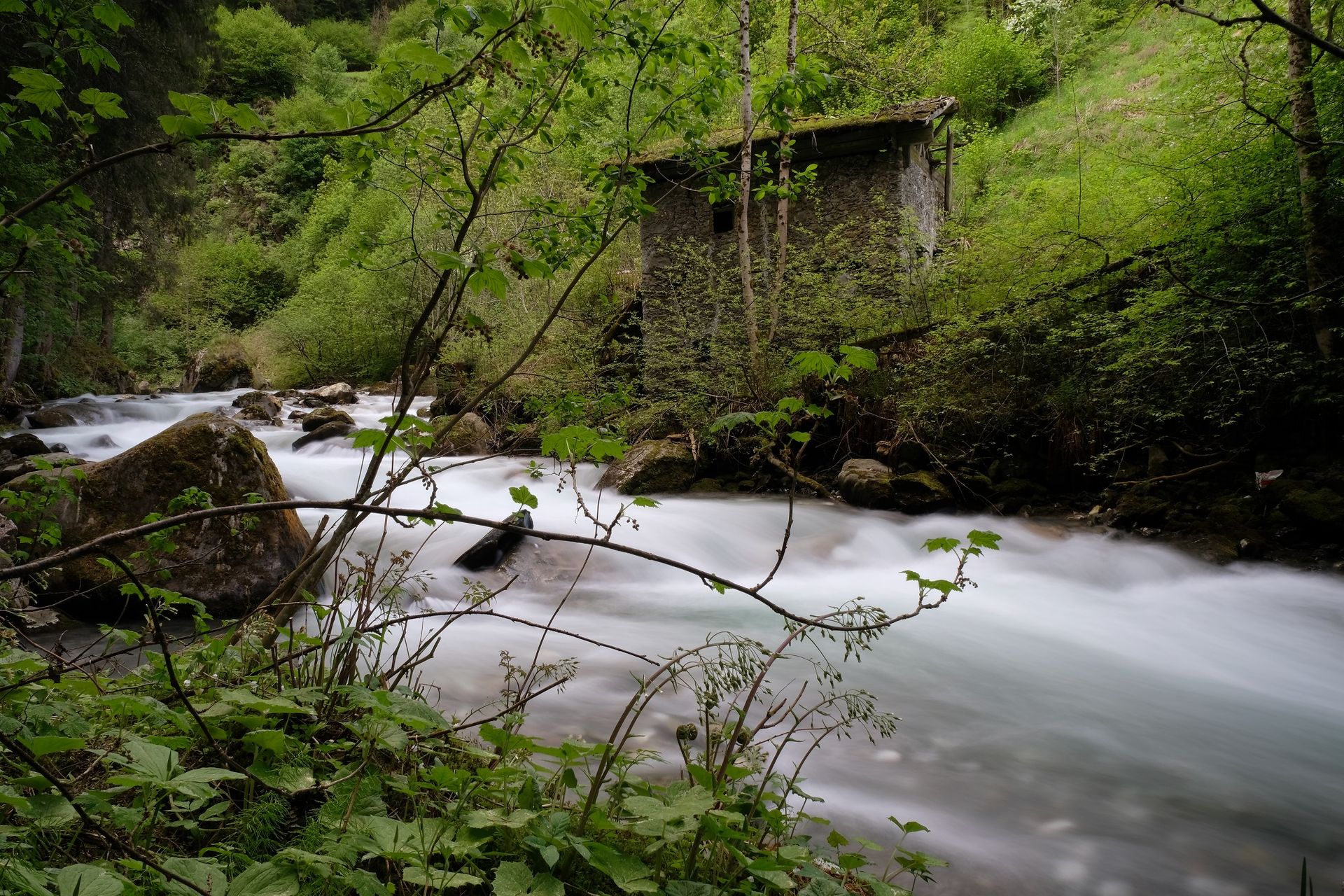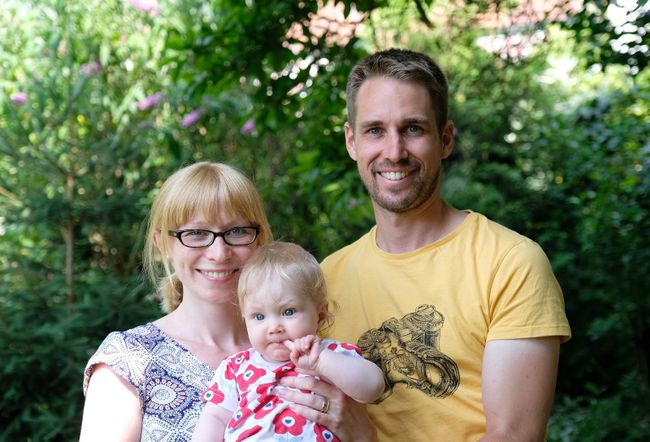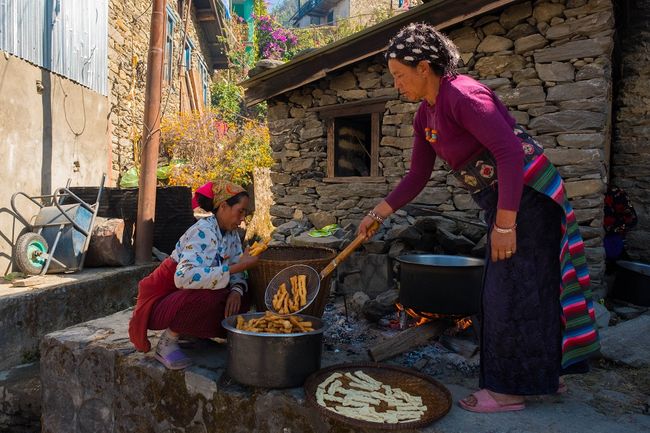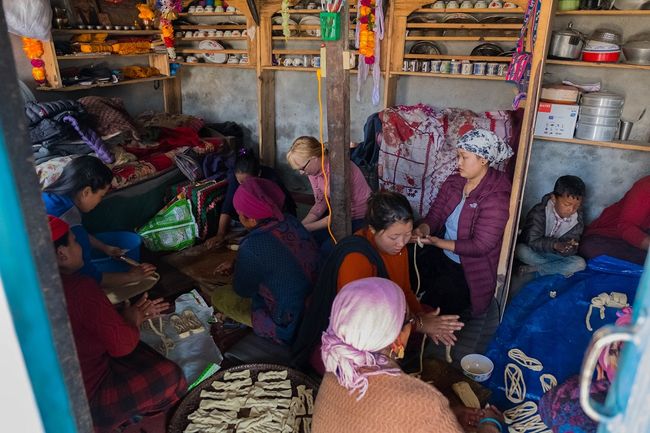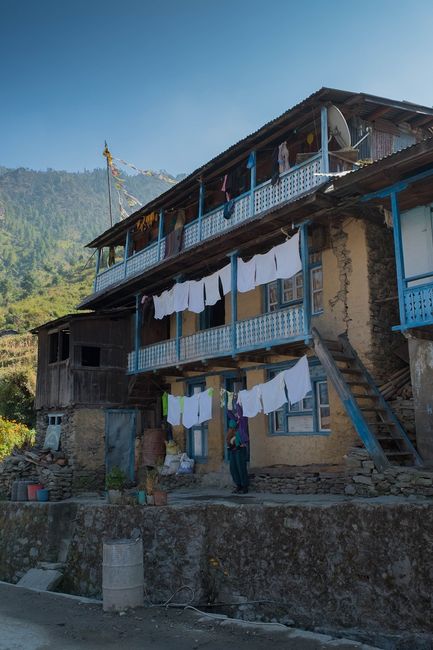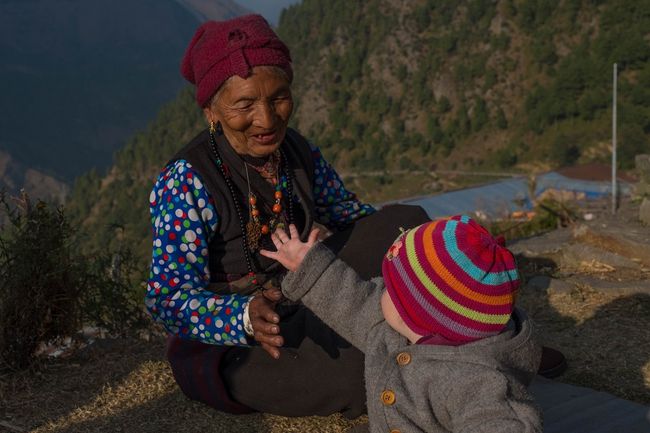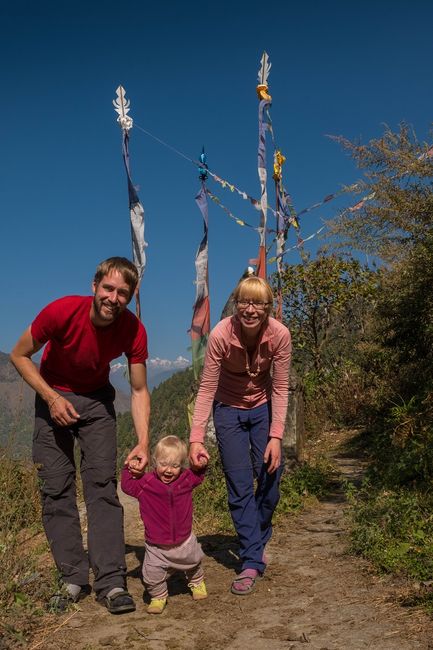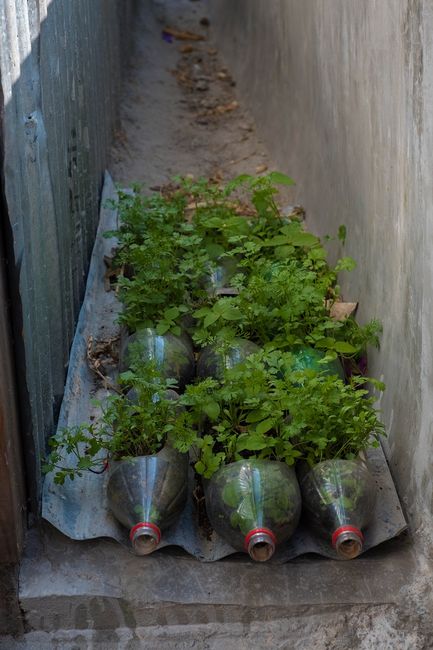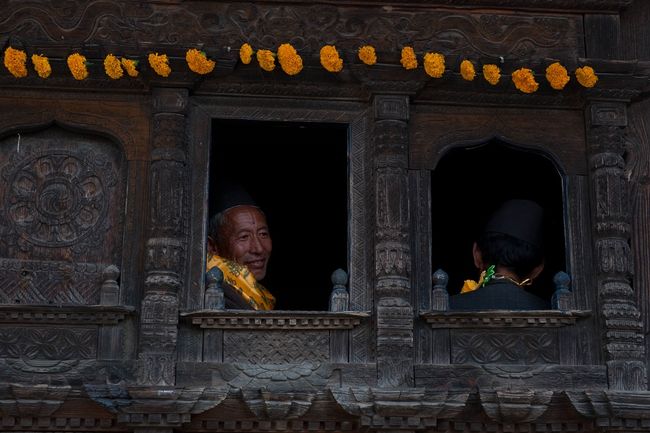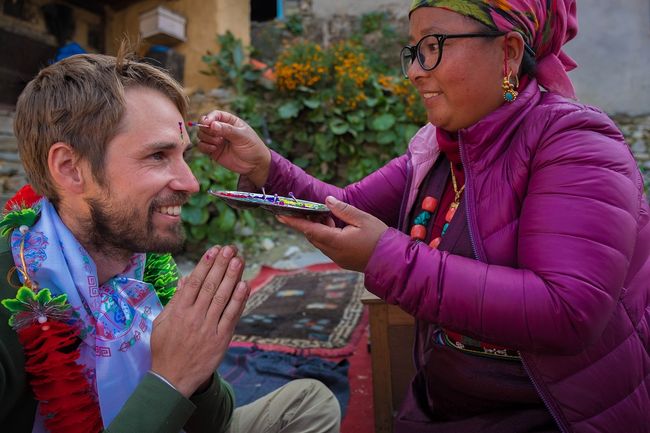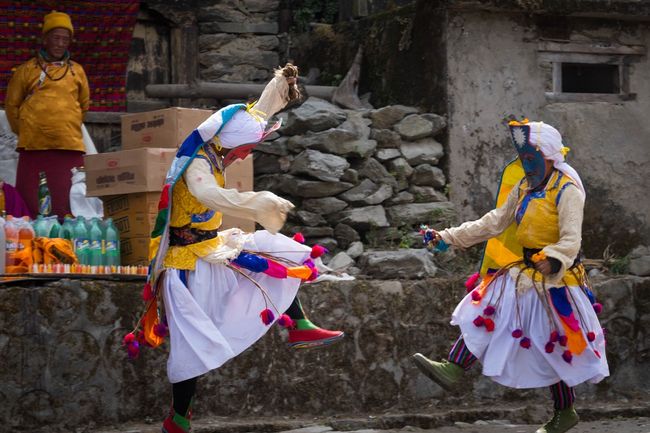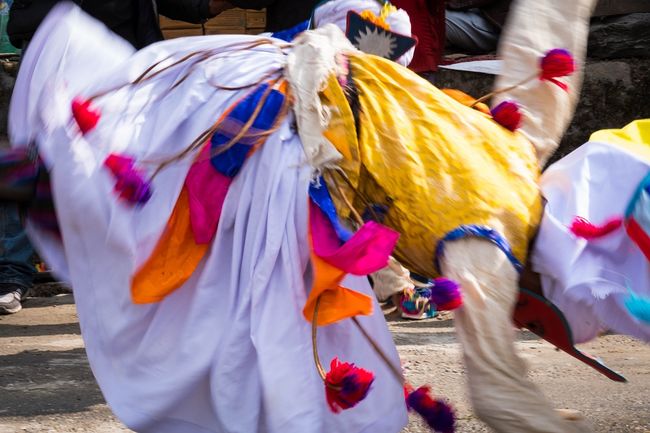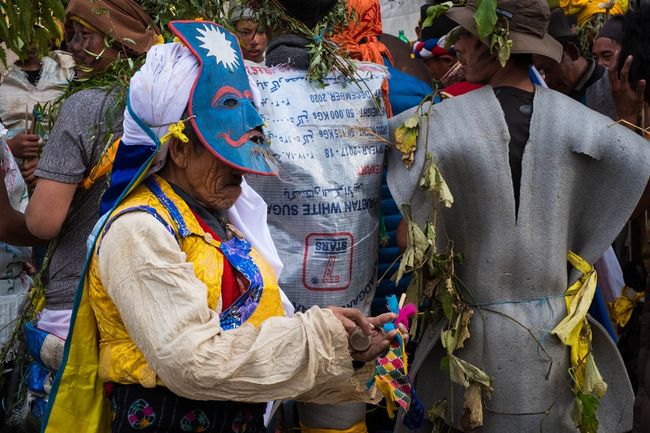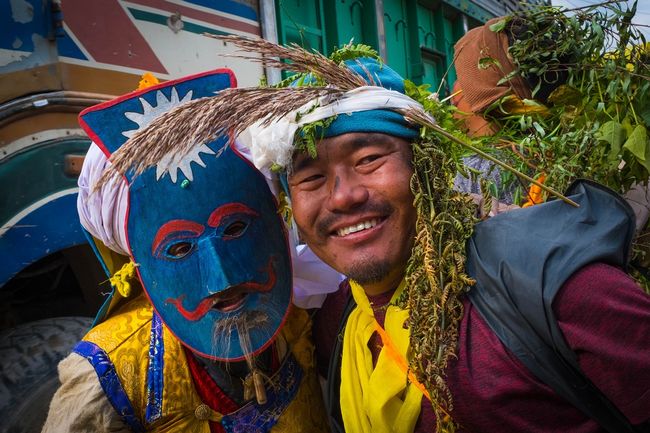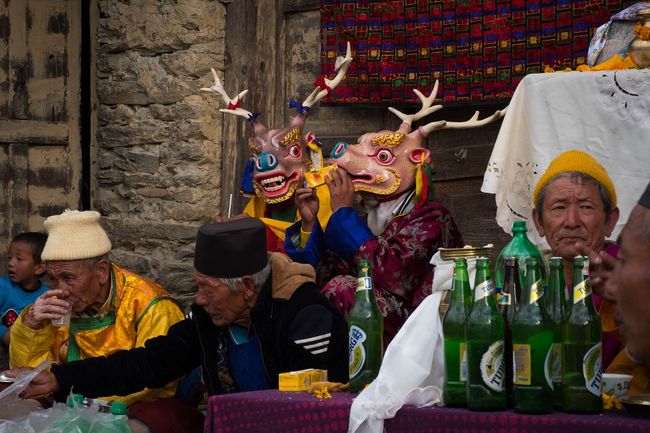village.life
Được phát hành: 30.12.2018
Đăng ký tin
After a month of hiking almost every day, we finally needed a longer break. In the village of Thulo Barkhu, Matthias spent a few weeks twelve years ago and helped out at the village school. Since he is still in contact with the sons of the former host family, we stayed with their parents for a week and were lucky enough to be able to spend the festivities of the Tihar holiday with the family. Physically, we definitely recovered during that time. However, communicating with the parents, who do not speak English, was challenging, and we are still not sure how many misunderstandings we caused and how many faux pas we made. The experiences of immersing ourselves in typical Nepalese village life kept us busy long after that week.

Shortly after our arrival, Matthias had the opportunity to get involved in village matters: one of the daughters of our host family is currently building a house and the entire male village community is helping with pouring the concrete for the intermediate ceiling. The family doesn't hold back: while the men work, the women prepare food and drinks for the helpers. After they invited us to eat, Matthias couldn't resist and also helped with the construction of the house. Our first day off could have been more relaxing for Matthias, but it allowed us to make many acquaintances in the village right away.
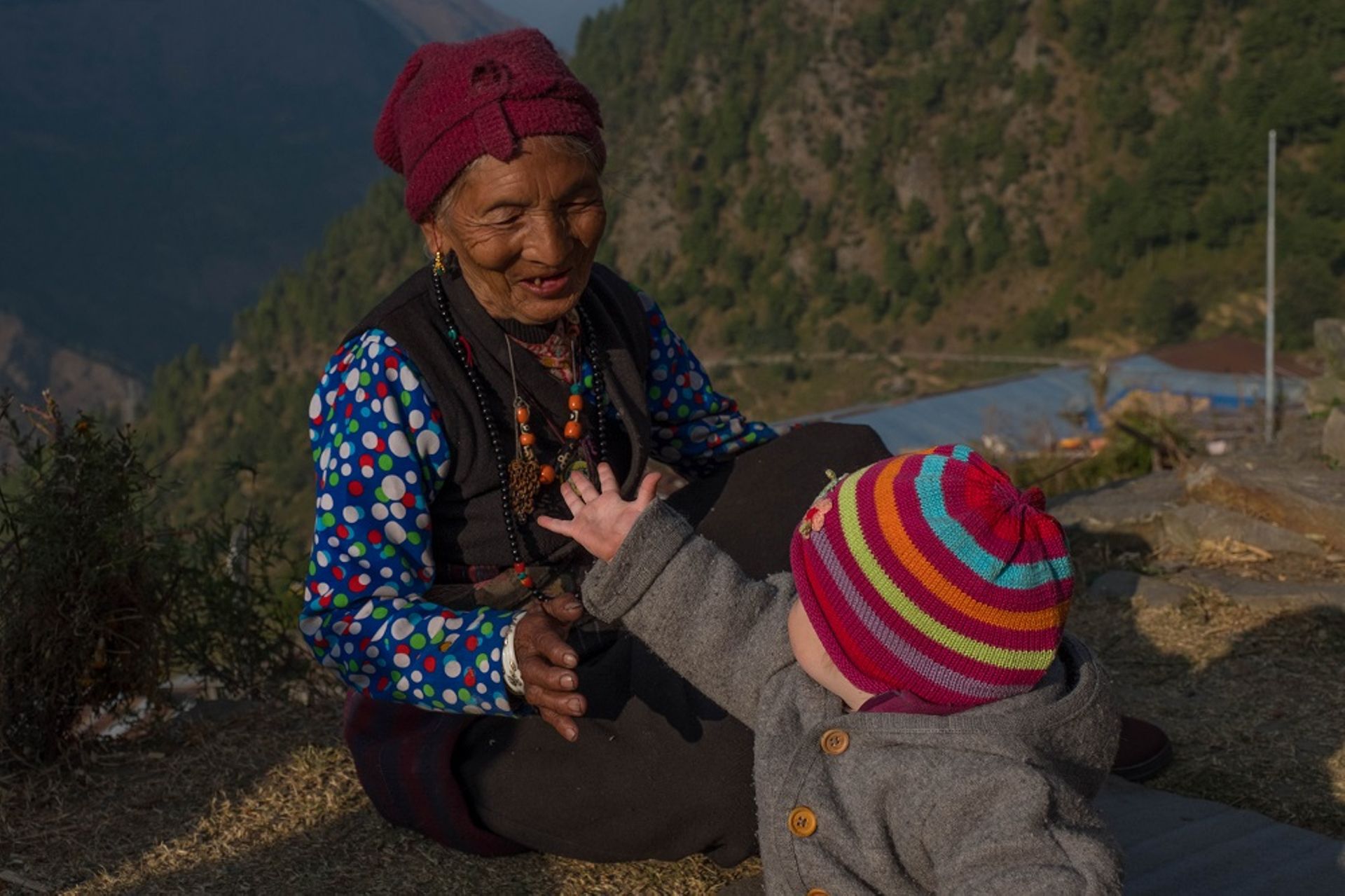
One of our new acquaintances would play a decisive role in village life two days later: the three of us were having lunch at a restaurant located a bit outside the village when we noticed a growing cloud of smoke. At first, we shook our heads, thinking that someone was burning their annual garbage, and we were concerned about our freshly washed laundry hanging up to dry. But after a few minutes, we realized: this is not an intentional fire, a house is burning. When we arrived at the fire a few minutes later, there was nothing left of the house. It quickly became clear to us what it meant when you can't rely on the fire department to arrive within minutes with a fire engine. Once again, the village community was called upon. However, due to a lack of coordinating authority and usable water connections, chaos ensued: many stood around, few helped extinguish the fire. We were also initially confused and clueless about how we could help. Eventually, we discovered that some people - led by the owner of the neighboring house - were carrying buckets of water. So Matthias joined in and when the police arrived later and took over coordination, everything went more smoothly.
A few hours later, we were able to recall which house had stood there before. Our tragic realization: just the day before, we had met the owner of the house. Standing in front of his house, he introduced us to his children and complained that he had no work and therefore only owned a very small house. Our empathy immediately made us think of fundraising campaigns for the family - until we learned the background of the fire the next day: the man, who had been intoxicated, had quarreled with his wife until she left the house with the children and went to her parents. Filled with anger, the man deliberately set the house on fire. The divorce was initiated by the woman the next day.
Since tourists rarely stay overnight in Thulo Barkhu, and if they do, it is usually only for one night, we quickly became known. Antonia - sometimes also Antoni or Antonio - naturally attracted the most attention. She usually drew amazed looks when eating: many were surprised that she eats the same food as us. The local children's eating habits also surprised us: they eat sweets from morning to evening! There is no child that does not hold a sugary snack in their hand. One image that particularly stuck with us was an eight-month-old child, strapped to the back of its mother in a sling - with a lollipop in its mouth. The sweets not only cause toothaches, which led to heart-wrenching crying fits in the granddaughter of our host family every evening, but also a mountain of garbage. The packaging of the mini portions is dropped on the spot. However, it must be mentioned: the children do not see anything different from the adults.

We were mostly warmly welcomed by the Nepalese during our entire time there. That is why we found the interaction within our host family all the more surprising. When the son of the family came home for the holidays after several weeks of staying in Kathmandu, he was greeted about as warmly as we would greet a family member who quickly went down to the cellar and brought back two bottles of sparkling water. Our gifts that we had sent to the parents of the family before our arrival were completely ignored by them. It was only after we inquired that we were told that the jackets were unfortunately too big - we did not find out if the other gifts were better received. And one last example: when we set off on the next trek after a week in the village, we took some things with us for one of the sisters of the family, who lives in a lodge two days' walk away, which she had forgotten last time. We did not expect a jubilant cry, but it surprised us that she did not thank us with a single word. In our eyes, it seemed quite cold and unfriendly - or simply intercultural misunderstandings? We don't know.

One highlight of our week in the village was the activities during the Tihar festival. It is the second most important festival in Nepal and lasts for five days. On the first few days, decorative lights - often colorful and blinking - are hung up and the women prepare pastries together. Here, finally, Swenja had the opportunity to get involved in the village activities. The last day is the most important for many people: sisters honor their brothers by applying so-called tikas to their foreheads and putting flower garlands around their necks, while the brothers give their sisters gifts. This happened with our host family during a shared lunch with the entire extended family, to which we were also invited.
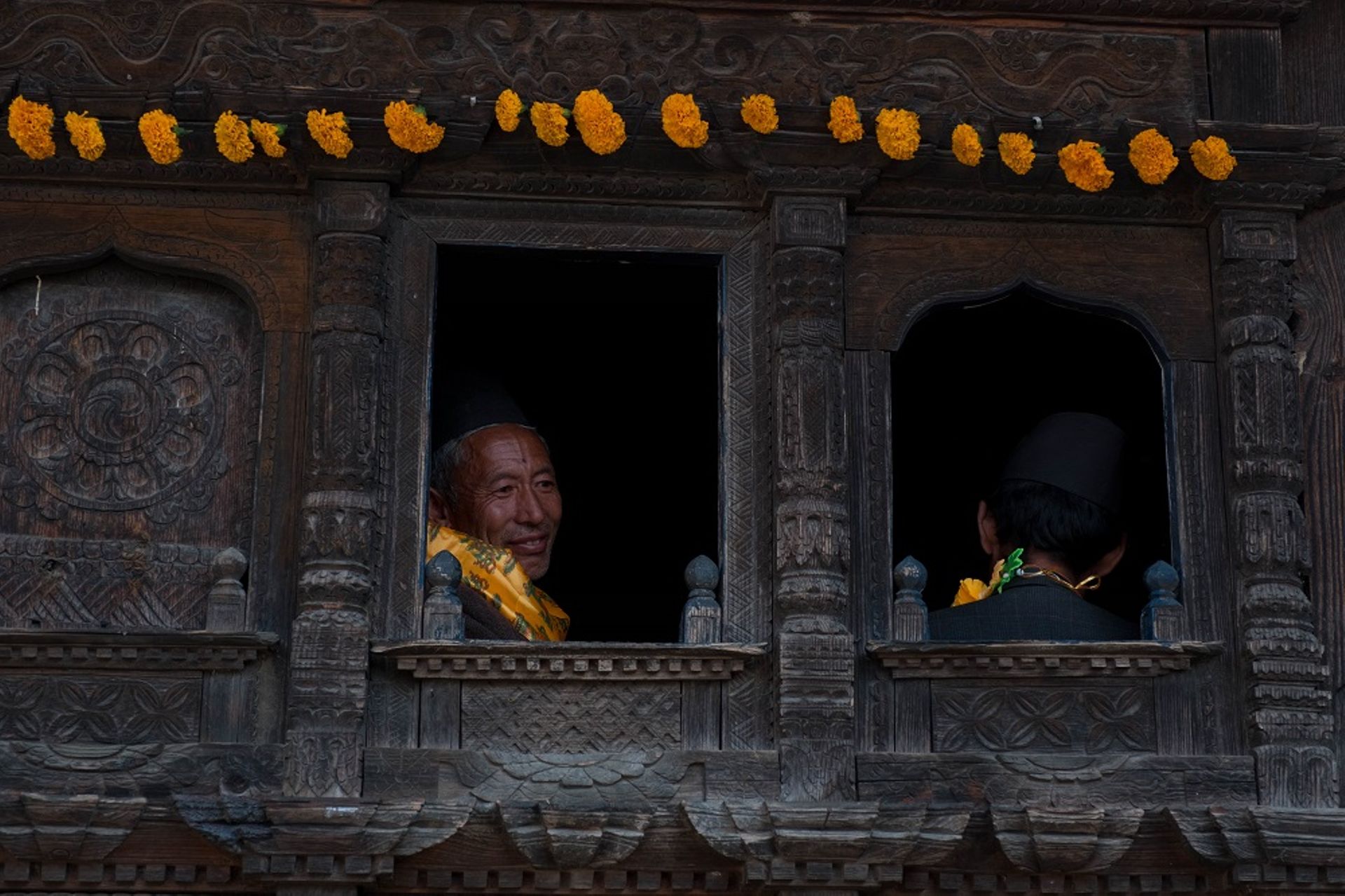



Đăng ký tin
Trả lời
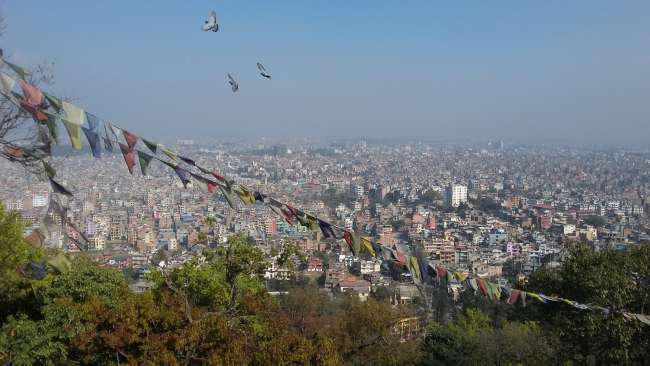
Báo cáo du lịch Nê-pan
